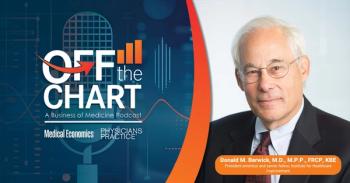
How Physicians Can Effectively Respond to Healthcare Changes
Here’s a look at some of the key healthcare changes occurring right now, and some suggestions for how best to respond.
The business model for the practice of medicine has changed dramatically in the last few years. Practitioners who develop clarity on the basic changes to the model, and figure out how to respond effectively will be able to thrive. Those who do not will spend the rest of their careers complaining about what is, and pining for what was.
There are two keys to an effective response to radical environmental changes:
1. Understanding the changes and the new environment.
2. Adapting in a way that meets as many of your needs as possible.
Here’s a look at some of the key healthcare changes occurring right now, and some suggestions for responding to them.
Changes to the Model
- The U.S. has probably hit the limit of what it can afford to spend on healthcare. It spends more than twice as much, as a percentage of GDP, on healthcare as any other developed country.
- Medicine is moving to reimbursements based on value, as opposed to reimbursements based on costs. Other industries, notably retail financial services and air transportation and energy utilities, were forced into this shift as many as forty years ago.
- Patients are being asked to shoulder more of the costs for their care. This shift is related to value-based reimbursements, because the recipient of the care should be the ultimate arbiter of value. Since value is the relationship between cost and benefit, a non-trivial cost to the patient is required to evaluate treatment options. For instance, if a patient’s cost is the same for an expensive procedure as it is for a less expensive and less convenient one, his convenience drives the decision. If the more expensive procedure costs him more, he must decide how much the convenience is worth.
- Physicians are being asked to assume more responsibility for outcomes. Given the complexity of human bodies and human behavior, this is the toughest change to manage. It requires mutual accountabilities between patients, all physicians involved in the care, and between a variety of other providers, and those will be difficult to establish.
Formulating an Effective Response
1. Define your objectives and priorities.
Identify and write down your objectives for the practice of medicine, your objectives for your family and personal life, and the things you specifically don’t want. The most attention needs to be paid to positive objectives, but it is important not to lose sight of deal-breakers.
Merge the lists of priorities and force-rank them. All of the entries are important, but you are likely to have to choose between them. It is much easier to evaluate options when there is clarity about the relative importance of your objectives.
2. Identify the Alternatives.
Creative physicians are doing all sorts of interesting things. I can guarantee that aggressive research will uncover options you never thought of. Here are some of the alternatives to consider:
- No change. Your current model will not work as well as it has in the past, but you could decide you like it better than the alternatives.
- Selling your practice to a hospital.
- Merging your practice with one or more other groups.
- Closing your practice and going to work for industry.
- Remaining independent, but radically revamping your practice model to adapt to the new economic environment.
- Becoming a hospitalist.
3. Rate the alternatives according to your objectives.
This is the payoff to the exercise of identifying and rating your objectives. The analysis is too complicated, with too many variables, to perform adequately without a structure to support it.
4. Evaluate the top two to three alternatives.
- Is the opportunity readily available?
- If not, what do you need to do to create the opportunity?
- Which is the most viable of these two to three options?
5. Make it happen.
Always easier said than done, but eminently possible if your chosen option is consistent with reality.
6. Remember that anything you have given up was in service of getting or retaining something you wanted more. No one can have everything he wants.
Thriving in the practice of medicine in 2012 and in the future requires that you accept the things you cannot change, the courage to change the things you can, and the wisdom to know and accept the difference. It is not necessarily easy, but it is very doable.
Newsletter
Optimize your practice with the Physicians Practice newsletter, offering management pearls, leadership tips, and business strategies tailored for practice administrators and physicians of any specialty.









